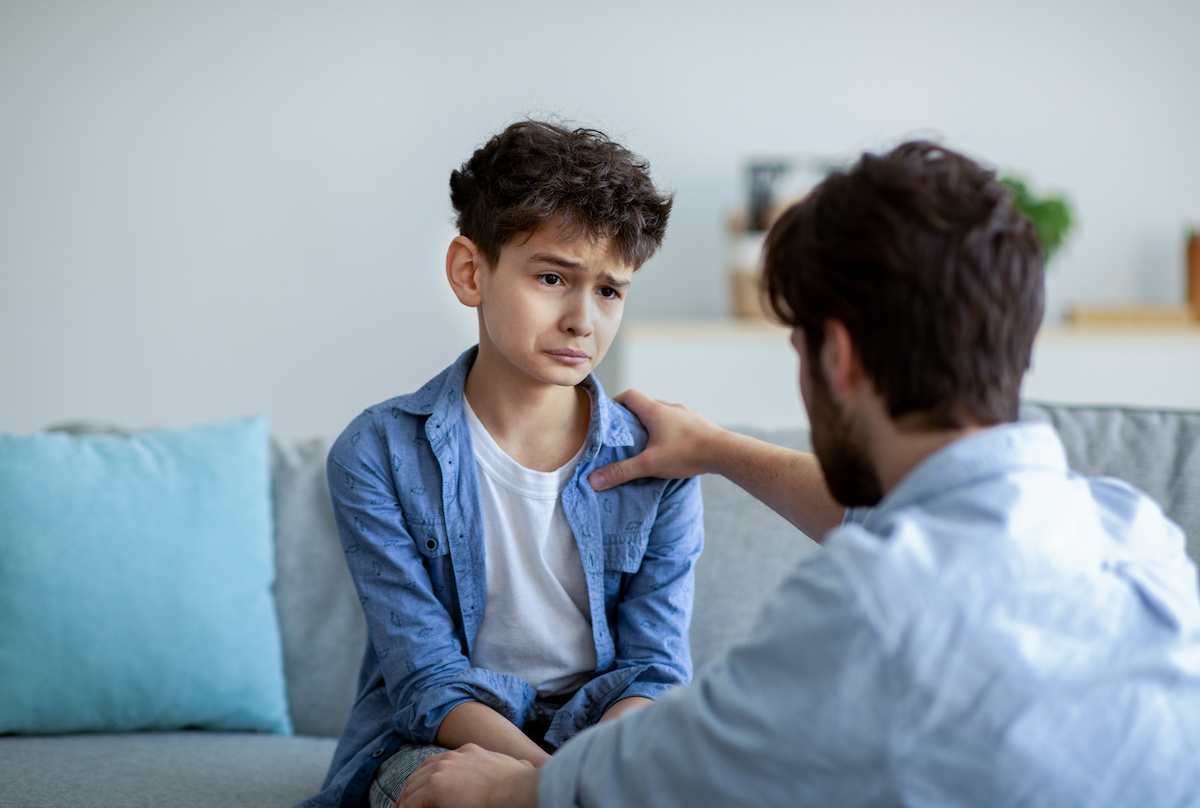As adults, we still often find ourselves not knowing how to deal with loss. This makes teaching your child about it even more difficult. Children do not fully comprehend death and grief, but it is important that their experiences with it when they are young pave the way for healthy healing later in life. There is no easy way to start, but there are tips to make the process easier.
How To Help Your Child Deal With Loss
Grief is one of the many lessons that your child will learn over time. At Carithers Pediatric Group, we know this is one of the most sensitive topics for adults and children. Here, we have provided lessons to remember when these conversations begin.
Be Realistic
Sometimes, the euphemisms that parents use to describe loss make kids more confused than anything. This is often paired with when a dog passes away, and it is referred to as “putting to sleep.” Children see sleep as something that they wake up from, so they hear this and believe that the dog will just wake up again soon. NPR discusses the importance of this because children struggle with death’s permanence.
Use Simple Language
Instead of making the topic of loss a drawn-out explanation, keep it to simple language. Children are more likely to absorb information that is not over-explained and confusing to them. While it may seem difficult to do, this can help them deal with loss in a healthy manner.
Explain What Is Going To Happen
While the loss itself is a big thing to explain, what comes next is important too. If it includes a funeral, explaining what this will look like can help the child understand. The child may have never experienced the idea of a funeral, and it can help the journey seem less daunting when they know what is upcoming.
Provide Comfort
Handling grief requires a collection of comfort and care. As a parent, it is important to show your child that you are there for them as they process how they are feeling. Make sure they know you are there to talk and even just provide company if they are not ready to share how they are feeling out loud.
Help Your Child Remember Them
Loss does not have to mean trying to forget. It is important to remind your child that memories are happy and do not have to be forgotten. KidsHealth recommends you ask your child to draw pictures and write things down about them. This can help with healing as they focus on happy memories.
Give Your Child Time To Cope
Everyone takes their own amount of time with something such as loss. There is no right or wrong answer, but it is important to pay attention to the progression. As your child learns more and experiences the loss, they may need more time to process certain aspects of it.
Find Extra Help If Necessary
If your child is not making progress after a longer period of time, it may be the time to consider seeking extra help. Sometimes, the role of a parent is not enough for a more serious mental issue going on. Talking to a medical professional may be the best-case scenario for them in the long run.
Loss is a very important lesson for children of any age. We are not able to predict when it will become a large part of someone’s life. That is why it is essential to have the skills to help get your child adjusted to the idea of loss. Are you struggling with teaching your child about grief? The doctors at Carithers Pediatric Group can help you along this path. Check out our website or give us a call for more information.



